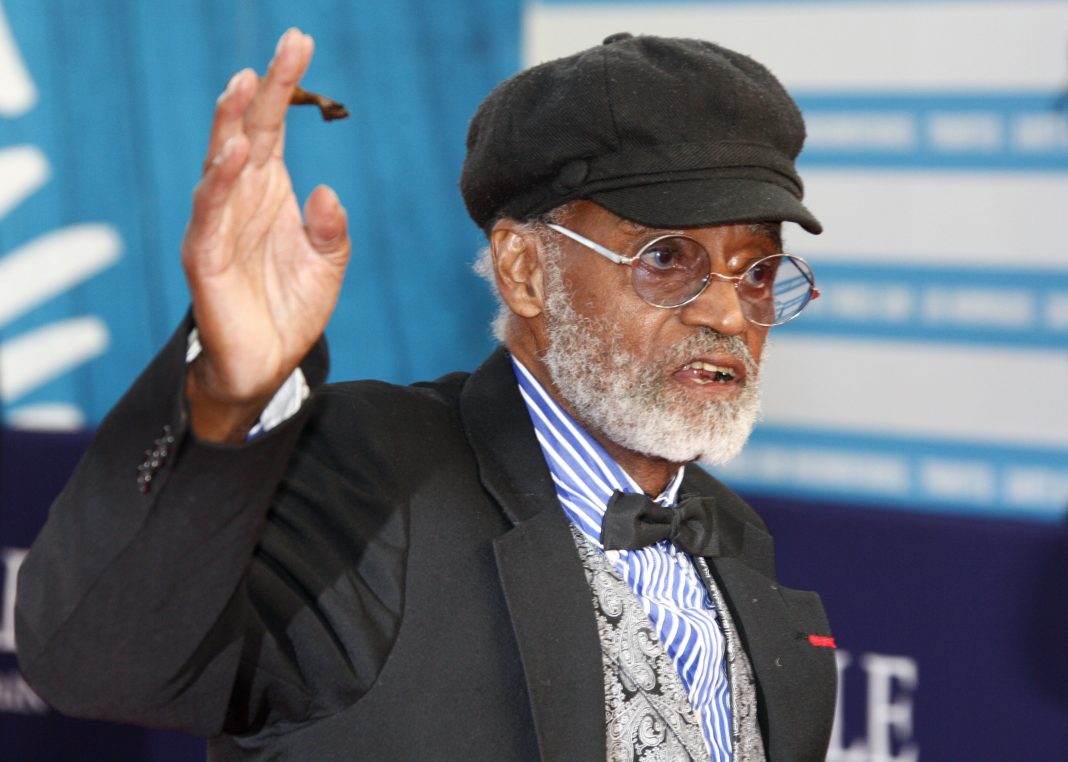Melvin Van Peebles, the trailblazing filmmaker, playwright and musician whose work ushered in the “blaxploitation” wave of the 1970s and influenced filmmakers long after, has died. He was 89.
In a statement, his family said that Van Peebles, father of the actor-director Mario Van Peebles, died on Tuesday evening at his home in Manhattan.
“Dad knew that black images matter. If a picture is worth a thousand words, what was a movie worth?” Mario Van Peebles said in a statement on Wednesday.
Sometimes called the “godfather of modern black cinema,” the multi-talented Van Peebles wrote numerous books and plays, and recorded several albums playing multiple instruments and delivering rap-style lyrics.
Born Melvin Peebles in Chicago on August 21, 1932 – he would later add ‘Van’ to his name – he was best known for Sweet Sweetback’s Baadasssss Song, one of the most influential movies of its time.
The low-budget, art-house film, which he wrote, produced, directed, starred in and scored, was the frenzied, hyper-sexual and violent tale of a black street hustler on the run from police after killing white officers who were beating a black revolutionary.
With its hard-living, tough-talking depiction of life in the ghetto, underscored by a message of empowerment as told from a black perspective, it set the tone for a genre that turned out dozens of films over the next few years and prompted a debate over whether black people were being recognised or exploited.
“All the films about black people up to now have been told through the eyes of the Anglo-Saxon majority in their rhythms and speech and pace,” Van Peebles told Newsweek in 1971, the year of the film’s release.
Made for around $US500,000, it grossed $US14 million at the box office despite an X-rating, limited distribution and mixed critical reviews.
But in the wake of the its success, Hollywood realised an untapped audience and began churning out such box office hits as Shaft and Superfly that were also known for bringing in such top musicians as Curtis Mayfield, Marvin Gaye and Isaac Hayes to work on the soundtracks.
Many of Hollywood’s versions were exaggerated crime dramas, replete with pimps and drug dealers, which drew heavy criticism.
“What Hollywood did – they suppressed the political message, added caricature – and blaxploitation was born,” Van Peebles said in 2002.
Civil rights groups like the NAACP and the Congress of Racial Equality coined the phrase “blaxploitation” and formed the Coalition Against Blaxploitation.
Among the genre’s 21st century fans was Quentin Tarantino, whose Oscar-winning Django Unchained was openly influenced by blaxploitation films.
After his initial success, Van Peebles was bombarded with directing offers, but chose to maintain his independence.
“I’ll only work with them on my terms,” he said. “I’ve whipped the man’s ass on his own turf. I’m number one at the box office – which is the way America measures things – and I did it on my own. Now they want me, but I’m in no hurry.”
Van Peebles then got involved on Broadway, writing and producing several plays and musicals like the Tony-nominated Ain’t Supposed to Die a Natural Death and Don’t Play Us Cheap. He later wrote the movie Greased Lightning starring Richard Pryor as Wendell Scott, the first black racing car driver.
Van Peebles’ death came just days before the New York Film Festival was to celebrate the 50th anniversary of Sweet Sweetback’s Baadasssss Song.


